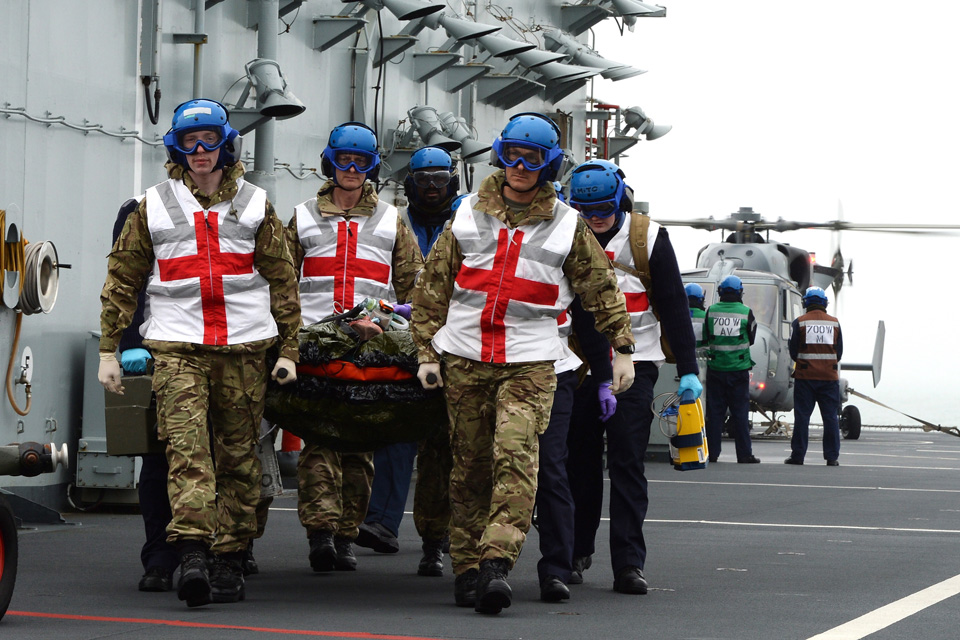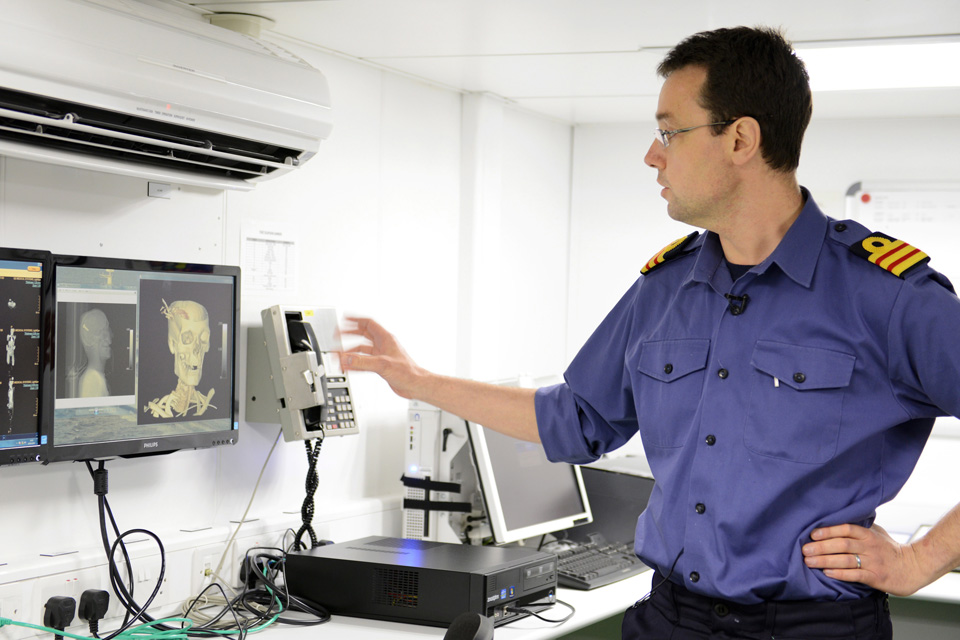Medics practise life-saving skills
Royal Navy doctors, nurses and surgeons have been putting their life-saving skills to the test in a high tempo exercise.
![A surgical team treats a simulated casualty's leg in the hospital facility on RFA Argus [Picture: Petty Officer (Photographer) Si Ethell, Crown copyright]](https://assets.publishing.service.gov.uk/media/5a60fc5240f0b65266e7b4ea/s300_SC_MX14001004.jpg)
A surgical team treats a simulated casualty's leg in the hospital facility
In a number of scenarios for Exercise Medical Endeavour, 250 medical personnel in the primary casualty receiving facility (PCRF) on board Royal Fleet Auxiliary (RFA) vessel Argus had to treat casualties played by volunteers with specialist make-up depicting terrible injuries.
Set to the same standards as any NHS hospital, the PCRF is tested twice-a-year to ensure their skills and the set-up is fully validated so that it’s ready to be used in operations around the world.
The facility ensures that casualties are treated and stable before eventually moving them to the Queen Elizabeth Hospital in Birmingham for longer term rehabilitation.

Medics transfer a simulated casualty from a helicopter to the hospital facility on RFA Argus [Picture: Petty Officer (Photographer) Si Ethell, Crown copyright]
Commander Danny Follington, the commanding officer of the PCRF, said that many lessons in critical battlefield care had been learnt from Afghanistan and, as a consequence, lives were being saved:
Deployed hospital care is invested in this vessel. Our maritime in-transit care team can fly forward, ventilate, resuscitate, give blood transfusions and bring patients back. It’s one of the lessons we learned from Afghanistan.
Another is that we now hold 600 units of blood on board and we have the ability to bleed people on board if necessary; that instant access to blood supply has been shown to be critical to saving lives and so we ensure that lesson has been brought to the PCRF as well.
We are set up in the same way as any trauma hospital. There are 4 teams that can do resuscitation, we have 10 intensive care unit beds, 100 ward beds, a full surgical team, microbiologists, radiologists, nursing teams; all of which work at either Derriford or Queen Alexandra hospitals in Plymouth and Portsmouth, directly augmenting the NHS.
The PCRF also boasts advanced equipment, including a 64-slice CT scanner, installed during the last refit. Used in Afghanistan, and also in the NHS, these scanners have been integral to saving the lives of British servicemen wounded in action.

Surgeon Commander Phil Coates explains the 64-slice CT scanner [Picture: Petty Officer (Photographer) Si Ethell, Crown copyright]
Consultant radiologist Surgeon Commander Phil Coates, who has twice deployed to the Camp Bastion hospital, said:
The imaging side of things is key in major trauma, one of the things we learned from Afghanistan. We can do 3D reconstruction and if a patient has been hit with frag we can see the organs which have been hit and ensure they get exactly the right care. Imaging dictates what happens. It is a fantastic piece of kit.